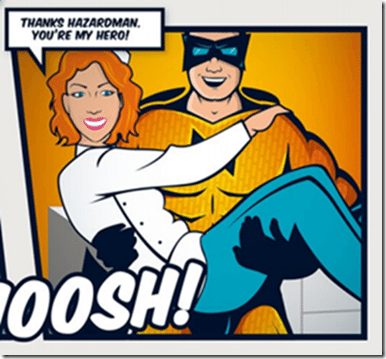Originally posted on October 21, 2015 @ 12:53 PM
Safety Utopia as Abuse
 Hugh Mackay (the Good Life) writes about helicopter parenting as a form of abuse. He calls the delusional quest for perfection ‘the Utopia Complex’. More and more research is showing that the Utopia Complex projects a by-product of abuse ; https://www.youtube.com/watch?v=Bg-GEzM7iTk ).
Hugh Mackay (the Good Life) writes about helicopter parenting as a form of abuse. He calls the delusional quest for perfection ‘the Utopia Complex’. More and more research is showing that the Utopia Complex projects a by-product of abuse ; https://www.youtube.com/watch?v=Bg-GEzM7iTk ).
The new Assistant Minister for Innovation (Wyatt Roy) names one of the enemies of innovation as ‘the culture of risk aversion’ ). The nonsense mythology and language of risk aversion cripples creativity and the charge is being led by WHS binary discourse. The by-product of risk aversion is fear and the fear of learning/failure. What this perpetuates is more fragility and greater extremes in failure when mistakes are made in denial of fallibility. There is only one way to go when one links lower order goals to performance, and that is down. see asx slump hits bhp-billiton chief andrew mackenzies pay packet.
I wrote about the quest for Utopia in risk and safety in my first book, Risk Makes Sense, Human Judgment and Risk (p. 82) and in For the Love of Zero, Human Fallibility and Risk (p. 22-41). A summary of the belief is also captured in the blog The Rage for Safety Utopia.
The quest for superhuman safety, Hazardman Safety or superhero safety is a denial of everyday safety. I saw this ad below on SEEK the other day and wondered if anyone applied.

- What happens when a superhero engages with a mere mortal?
- What happens when a fallible person makes a mistake and the superhero comes in?
- How does the superhero ‘serve’ others?
-
How does superhuman safety create ownership, thinking and risk intelligence?
-
How does thinking and talk about superiority over others minimize distance between workers and managers?
-
What does a safety committee do when a superhero is around?
-
Why do organisations want to talk in such nonsense language?
-
Why would anyone think that a metaphor of a superhuman helps people manage safety and risk in everyday moments?
-
What is the trajectory of utopian language and goals on an organization in trying to manage risk effectively each day?
-
What happens to the superhero when everyone finds out they are a fraud and really just a fallible human?
This ad and many like it is just more evidence of ‘dumb down’ safety trying to be clever but creating more perfectionist discourse in the workplace that is anti-learning and anti-safety. In the end, as McKay might say, the ‘Utopia Complex’ is abusive.



Do you have any thoughts? Please share them below